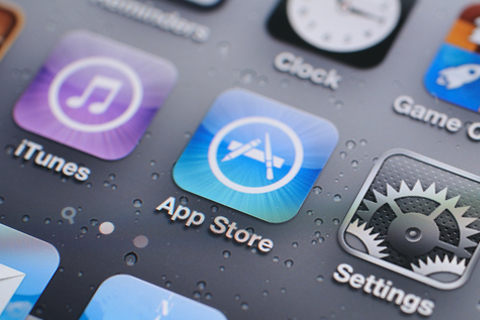Why a digital detox may be good for your health
by Matt Hodges
03 August 2015
When it comes to our health and fitness, we have an enduring obsession with the days of yore. We follow Paleo diet plans; we do ‘caveman’ activities such as Nordic walking and dead-lifts, and we tend to favour organic products. There is, however, one glaring addition to modern life that is far from compatible with this ‘back to basics’ mentality: our technology.
There is no doubt that wellness forums, fitness apps and wearable technologies have made it easier to follow a fitter, healthier lifestyle. However, it’s not all good news; advances in technology enable us to be contactable wherever we are. This accessibility is accompanied by the ever-growing expectation that we can (and, therefore, should) be constantly available to interact with others. The truth is, an over-reliance on our digital devices can have a detrimental effect on our wellness and our health.
Gone are the days when people left work behind at 5 pm and returned to it at 9 am the next morning. While greater flexibility for contacting each other has its definite advantages, being ever connected to your work inbox can cause noticeable adverse side effects, such as high stress and adrenal burnout. Physically, technology does us no favours either – so many of us suffer from poor posture due to sitting at a laptop all day, and repetitive strain injury from over-enthusiastic texting. And then there are the less well-documented side-effects of our digital lives: the waning eyesight from staring at screens 24/7; the shorter attention span; the lack of energy; and poor sleep patterns- even insomnia. If you find yourself struggling with any of these health issues, you may benefit from a digital detox.
What is a digital detox?
A digital detox simply involves switching off and tuning out from the technological world around you. It can signal a drastic lifestyle change; incorporate a retreat (there is a growing trend for indulging in a detox holiday) or just mean making a series of small alterations to your routine. The point is to nourish your mind and body by allowing yourself time to relax and switch off on a regular basis. Here’s how you can become more refreshed, simply by easing yourself into a digital detox each night.
Create a ‘digital sunset’
At least an hour before you go to bed, power down. It’s advisable to switch off your laptop, your tablet, your TV and your phone – and if possible keep them all out of your bedroom. If you are in the habit of watching Netflix until you fall asleep, change your routine. Read a book, listen to some music or write in a journal before going to bed.
Make your bedroom a screen-free zone
The blue light and faint buzzing noises from your screens may be keeping you awake at night, or at least preventing you from having the best quality of sleep. Blue light sources are a distraction and can disrupt the sleep-inducing hormone melatonin and make us hyper-vigilant. A 2014 study by a Harvard Medical School professor looked into this. Dr. Charles A. Czeisler, M.D., Ph.D., revealed how blue light activates the brain – which prevents us from feeling tired and limits the amount of truly restorative sleep we get to enjoy. It’s worth experiencing the benefits of a ‘technology cull’; ban all screens from your bedroom so that you have one space in your home where you can get back to nature and relax peacefully. It does make a difference!
Buy a retro alarm clock
According to Ofcom, eight out of ten of us keep our mobiles on at night – with half of us now relying on our smartphones to get us up in the morning. Once upon a time, there were these wake-up devices called alarm clocks. Fast forward to 2015, and these days it’s worth re-investing in one! Unlike a mobile phone, an old fashioned alarm clock doesn’t deliver even the tiniest dose of electromagnetic radiation. It also promises to wake you up without blinding sensitive eyes. The bonus? A resurgence in ‘old school’ homeware accessories means that nowadays it’s guaranteed to look stylish!
This article was written by Matt Hodges, you can see all his articles here.






